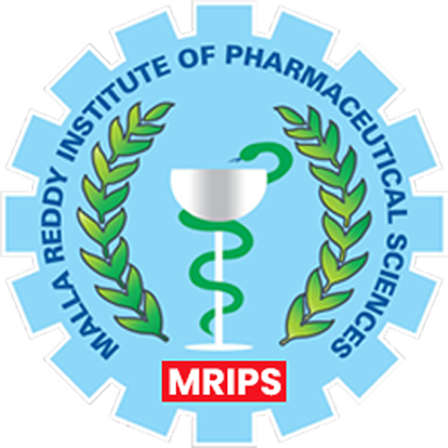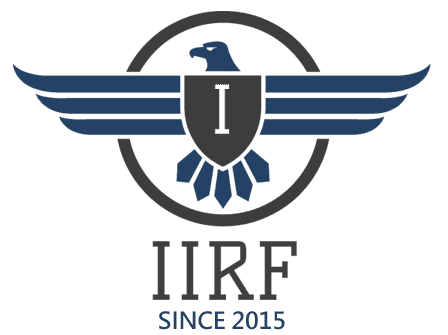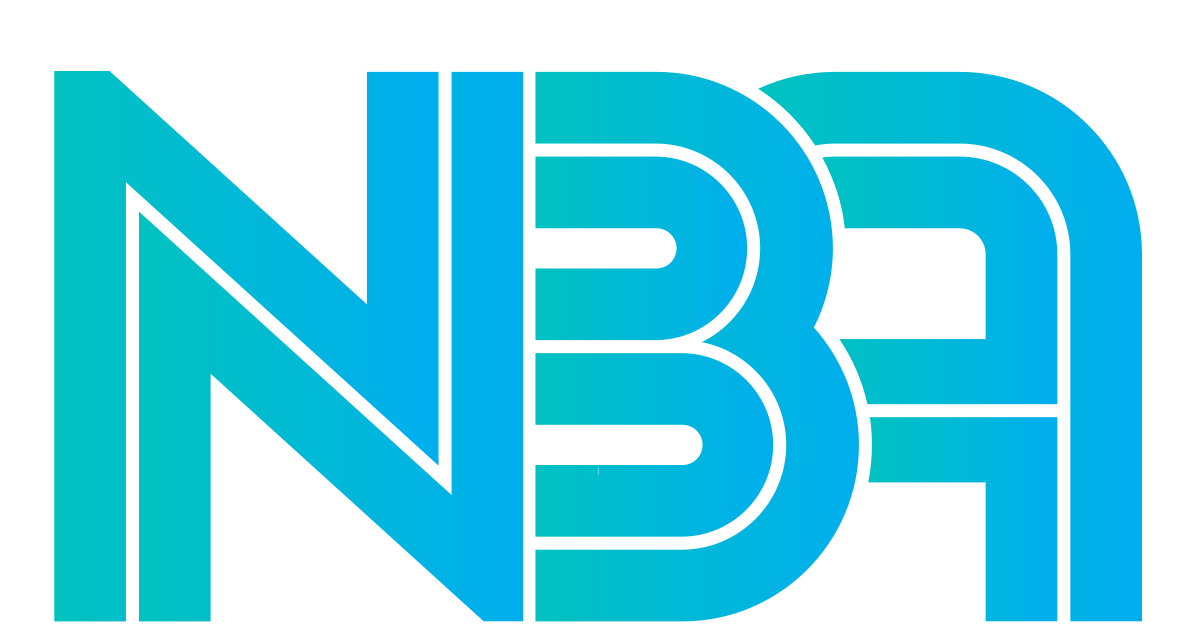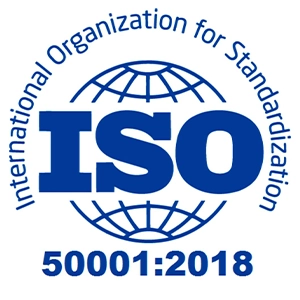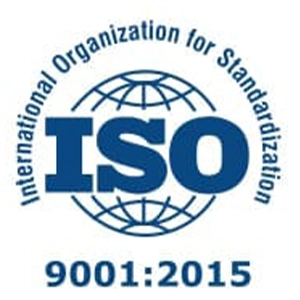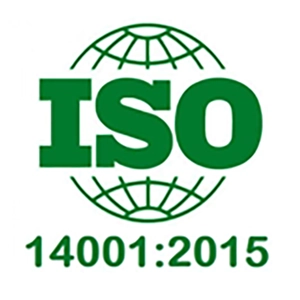Global Connect
Connecting students to global opportunities.
This comprehensive guide outlines detailed information on foreign exams for B.Pharmacy and
Pharm.D graduates. Each exam listed includes at least 10 key points to help candidates understand
the structure, eligibility, and requirements.
TOEFL / IELTS
1. Required for admission to English-speaking universities.
2. TOEFL is internet-based and widely accepted in the U.S.
3. IELTS is accepted in most English-speaking countries including the UK, Canada, Australia.
4. Tests include reading, writing, listening, and speaking.
5. Minimum score requirements vary by institution (e.g., 6.5+ in IELTS, 90+ in TOEFL iBT).
6. Validity is generally 2 years.
7. Computer-based and paper-based versions available.
8. Essential for visa and immigration processes.
9. Practice materials and mock exams are widely available.
10. Can be taken multiple times for score improvement.
1. Required for graduate programs in the U.S. (e.g., M.S. in Pharmacology).
2. Measures verbal reasoning, quantitative reasoning, and analytical writing.
3. Accepted by thousands of graduate schools worldwide.
4. Scores range from 260 to 340.
5. Conducted online at test centers or at home.
6. Valid for 5 years.
7. Some pharmacy-related programs may waive GRE.
8. High scores increase chances of scholarships.
9. Multiple prep courses and books available.
10. Registration is done via ETS.org.
1. Required for foreign pharmacy graduates to practice in the U.S.
2. Administered by NABP (National Association of Boards of Pharmacy).
3. Applicants must apply for FPGEC Certification.
4. Requires a 5-year pharmacy curriculum or Pharm.D degree.
5. Exam focuses on basic biomedical and pharmaceutical sciences.
6. TOEFL iBT is mandatory before certification.
7. Held twice a year at authorized Pearson VUE centers.
8. Score requirement: minimum scaled score of 75.
9. Part of the path to becoming eligible for NAPLEX.
10. Must submit educational documents for evaluation by NABP.
1. Licensure exam to test pharmacy knowledge in the U.S.
2. Administered by NABP after FPGEC certification (for foreign grads).
3. Tests ability to assess pharmacotherapy and manage medication.
4. Composed of 225 questions (mostly multiple choice).
5. Duration: 6 hours.
6. Scoring: scaled score, minimum passing is 75.
7. Required by all U.S. states.
8. Must be taken within 1 year of eligibility authorization.
9. Typically taken after completing required intern hours.
10. Followed by MPJE for law-related knowledge.
1. Multistate Pharmacy Jurisprudence Examination.
2. Required in most U.S. states after NAPLEX.
3. Tests knowledge of state and federal pharmacy laws.
4. Each state has its own version of MPJE.
5. 120 questions, 2.5 hours to complete.
6. Must apply separately for each state you wish to practice.
7. Score requirement: minimum scaled score of 75.
8. Administered by Pearson VUE.
9. NABP provides eligibility and scheduling.
10. Vital for pharmacists handling controlled substances and compliance.
1. Required for foreign pharmacy graduates to practice in Canada.
2. Conducted by the Pharmacy Examining Board of Canada.
3. Includes two stages: Evaluating Exam and Qualifying Exam.
4. Evaluating Exam tests basic pharmaceutical knowledge.
5. Qualifying Exam Part I (MCQs) and Part II (OSCEs).
6. Language proficiency (IELTS/TOEFL) required.
7. Candidates must register with NAPRA.
8. Certification is required before internship.
9. Exam sessions held multiple times yearly.
10. Mandatory for licensure in all Canadian provinces.
1. OSPAP is a one-year course required for non-EU pharmacy grads.
2. Conducted by GPhC-accredited UK universities.
3. IELTS (Academic) score of 7.0+ is mandatory.
4. Followed by a 52-week pre-registration placement.
5. Candidates then take the GPhC Registration Assessment.
6. GPhC exam includes clinical and calculation papers.
7. Required for registration as a UK pharmacist.
8. Applicants must prove eligibility via GPhC portal.
9. OSPAP covers UK law, ethics, and practice standards.
10. One of the few routes available for foreign pharmacists in the UK.
1. Run by the Australian Pharmacy Council (APC).
2. Required for foreign-trained pharmacists.
3. Includes knowledge assessment and oral exam.
4. Candidates must pass the KAPS exam first.
5. English language test (IELTS/OET) is essential.
6. Applicants must hold a recognized pharmacy degree.
7. APC certification is valid for registration with AHPRA.
8. Oral assessment includes patient counseling and drug info.
9. The process is multi-step and may take 1-2 years.
10. Allows pharmacists to work anywhere in Australia.
1. Competency Assessment Program is required by the Pharmacy Council of New Zealand.
2. It is a bridging course for internationally qualified pharmacists.
3. Must meet English language requirements (IELTS or OET).
4. Involves training in clinical, legal, and communication aspects.
5. Usually conducted over a few months.
6. Offered by accredited New Zealand institutions.
7. Prepares candidates for supervised practice.
8. Final registration granted after internship.
9. Open to both BPharm and Pharm.D graduates.
10. Mandatory for permanent pharmacy licensure.
1. Required for pharmacy practice in UAE, Qatar, Oman, and Saudi Arabia.
2. DHA: Dubai Health Authority licensure exam.
3. HAAD: Abu Dhabi Health Services licensure exam.
4. MOH: Ministry of Health UAE exam for other emirates.
5. SMLE: Saudi Medical Licensing Exam for pharmacists.
6. Exams include pharmaceutical sciences and clinical pharmacy.
7. Online format and MCQ-based.
8. Requires degree equivalency and dataflow verification.
9. Experience (1-2 years) is often required.
10. Validity of license varies by country and job contract.
1. Requires equivalence of foreign pharmacy degree.
2. German language proficiency at B2 or C1 level.
3. Knowledge test (Kenntnispr-fung) may be required.
4. May need to complete adaptation period (Anerkennung).
5. TOEFL/IELTS required for education (if in English).
6. EU countries may have separate regulations.
7. Proof of professional experience can be helpful.
8. Application via local state health authority (Approbation).
9. Involves both theoretical and practical assessments.
10. Eligibility varies based on EU recognition directives.
This guide outlines major foreign exams and scholarships for M.Pharmacy graduates and Ph.D.
aspirants. Each entry includes 10 important details to help with planning higher studies and research
abroad.
1. Required for Ph.D. and research-based master’s programs in the U.S. and some other countries.
2. Assesses verbal reasoning, quantitative reasoning, and analytical writing.
3. Some top universities waive GRE for Pharmacy/Ph.D. programs.
4. High GRE scores improve scholarship chances.
5. Conducted by ETS, available multiple times a year.
6. Valid for 5 years from the test date.
7. Often required alongside TOEFL/IELTS.
8. Subject GRE in Biology or Chemistry may help, though optional.
9. Online and center-based test options are available.
10. Competitive scores for top programs: 310+ overall.
1. Mandatory for non-native English speakers applying to foreign universities.
2. Tests reading, writing, speaking, and listening skills.
3. IELTS preferred in UK, Australia; TOEFL in the USA.
4. Minimum scores vary: IELTS (6.5+), TOEFL iBT (90+).
5. Valid for 2 years.
6. Some scholarships require higher scores (IELTS 7+).
7. Needed for student visa applications.
8. Accepted by universities, licensing bodies, and scholarship programs.
9. Frequent test dates and worldwide availability.
10. Practice tests and prep courses are widely accessible.
1. National eligibility test for JRF (Junior Research Fellowship) and Ph.D. admissions.
2. Conducted twice a year by NTA.
3. Paper includes General Aptitude and subject-specific questions.
4. Subject for Pharmacy students: Chemical Sciences / Life Sciences.
5. Qualification opens doors for Ph.D. in Indian universities and CSIR labs.
6. Fellowship amount: approx. -31,000/month for JRF.
7. Valid for research institutes, IITs, NIPERs.
8. No application abroad but supports research credentials.
9. Good preparation base for foreign Ph.D. programs.
10. Syllabus includes organic chemistry, pharmacology, and analytical methods.
1. Offers full and partial scholarships for MS/Ph.D. in Germany.
2. Open to students from developing countries, including India.
3. Covers tuition, monthly stipend, travel, and insurance.
4. No tuition fees in public German universities.
5. Requires English (IELTS) or German language proficiency.
6. Research proposal is mandatory for Ph.D. applications.
7. Competitive selection process based on academics and SOP.
8. Applications through DAAD portal or uni-assist.
9. Most programs begin in October (Winter intake).
10. Must contact a professor for Ph.D. acceptance letter.
1. Fully funded scholarship for Indian students applying to U.S. universities.
2. Covers tuition, living expenses, airfare, and health insurance.
3. Separate tracks for MS, Ph.D., and research.
4. Requires excellent academics, GRE, and TOEFL scores.
5. Strong Statement of Purpose (SOP) and recommendation letters are vital.
6. Fellowship duration: up to 2 years (extendable).
7. Community service or leadership experience preferred.
8. Competitive and prestigious – adds to research credentials.
9. Application starts around February each year.
10. Alumni network offers long-term professional support.
1. For students from Commonwealth nations, including India.
2. Funded by the UK Foreign, Commonwealth & Development Office (FCDO).
3. Covers tuition, airfare, and living allowance.
4. Available for Master’s and Ph.D. programs in the UK.
5. Selection is based on academic merit and development impact.
6. IELTS required for application.
7. Usually routed through national nominating agencies (e.g., UGC).
8. Annual application cycle opens around September.
9. Applicants must apply to both university and scholarship portal.
10. Focus on fields related to health, development, and innovation.
1. European Union-funded research fellowships.
2. Open to Ph.D. aspirants and post-doc researchers worldwide.
3. Includes training, mobility, and career development support.
4. Highly competitive, supports interdisciplinary research.
5. Covers salary, research costs, travel, and family allowance.
6. Requires collaboration with European universities/labs.
7. Calls are published on the EU Funding Portal.
8. Often part of Horizon Europe framework.
9. No citizenship restriction, but mobility rule applies.
10. Ideal for pharma/biomedical Ph.D. candidates.
1. Prestigious French government scholarship for international students.
2. Available for Master’s and Ph.D. programs in science and health.
3. Covers monthly stipend, international travel, insurance, and housing allowance.
4. Does not cover tuition fees – waived by French institutions.
5. Applicant must apply through the host university.
6. French or English proficiency required (depending on program).
7. Selection based on academic excellence and potential.
8. Deadline usually around January each year.
9. Available across public and private French institutions.
10. Great for pharma-related research programs in France.
1. Funded by the Australian Government for study in Australian universities.
2. Covers full tuition, return airfare, establishment allowance, and living costs.
3. Focus on leadership and development impact.
4. Ph.D. and research-based master’s programs eligible.
5. English proficiency (IELTS/TOEFL) is mandatory.
6. Requires unconditional university admission offer.
7. Includes Introductory Academic Program and support services.
8. Preference to applicants from underrepresented backgrounds.
9. Return-to-country condition may apply post-study.
10. Strong focus on healthcare and pharmaceutical innovation.
1. Canada’s premier Ph.D. scholarship program.
2. Awards $50,000 per year for 3 years.
3. Applicants must be nominated by a Canadian university.
4. Open to all nationalities, including Indian students.
5. Requires outstanding academic achievements and leadership.
6. Fields: health sciences, engineering, and natural sciences.
7. TOEFL/IELTS mandatory for non-native English speakers.
8. Selection based on academic excellence and research potential.
9. Deadline: institutional deadlines vary, national deadline in November.
10. Highly competitive, excellent for pharma researchers.
Comprehensive Guide: Foreign Exams for Pharmacy Graduates
This comprehensive guide outlines detailed information on foreign exams for B.Pharmacy and
Pharm.D graduates. Each exam listed includes at least 10 key points to help candidates understand
the structure, eligibility, and requirements.
TOEFL / IELTS
1. Required for admission to English-speaking universities.
2. TOEFL is internet-based and widely accepted in the U.S.
3. IELTS is accepted in most English-speaking countries including the UK, Canada, Australia.
4. Tests include reading, writing, listening, and speaking.
5. Minimum score requirements vary by institution (e.g., 6.5+ in IELTS, 90+ in TOEFL iBT).
6. Validity is generally 2 years.
7. Computer-based and paper-based versions available.
8. Essential for visa and immigration processes.
9. Practice materials and mock exams are widely available.
10. Can be taken multiple times for score improvement.
GRE
1. Required for graduate programs in the U.S. (e.g., M.S. in Pharmacology).
2. Measures verbal reasoning, quantitative reasoning, and analytical writing.
3. Accepted by thousands of graduate schools worldwide.
4. Scores range from 260 to 340.
5. Conducted online at test centers or at home.
6. Valid for 5 years.
7. Some pharmacy-related programs may waive GRE.
8. High scores increase chances of scholarships.
9. Multiple prep courses and books available.
10. Registration is done via ETS.org.
FPGEE
1. Required for foreign pharmacy graduates to practice in the U.S.
2. Administered by NABP (National Association of Boards of Pharmacy).
3. Applicants must apply for FPGEC Certification.
4. Requires a 5-year pharmacy curriculum or Pharm.D degree.
5. Exam focuses on basic biomedical and pharmaceutical sciences.
6. TOEFL iBT is mandatory before certification.
7. Held twice a year at authorized Pearson VUE centers.
8. Score requirement: minimum scaled score of 75.
9. Part of the path to becoming eligible for NAPLEX.
10. Must submit educational documents for evaluation by NABP.
NAPLEX
1. Licensure exam to test pharmacy knowledge in the U.S.
2. Administered by NABP after FPGEC certification (for foreign grads).
3. Tests ability to assess pharmacotherapy and manage medication.
4. Composed of 225 questions (mostly multiple choice).
5. Duration: 6 hours.
6. Scoring: scaled score, minimum passing is 75.
7. Required by all U.S. states.
8. Must be taken within 1 year of eligibility authorization.
9. Typically taken after completing required intern hours.
10. Followed by MPJE for law-related knowledge.
MPJE
1. Multistate Pharmacy Jurisprudence Examination.
2. Required in most U.S. states after NAPLEX.
3. Tests knowledge of state and federal pharmacy laws.
4. Each state has its own version of MPJE.
5. 120 questions, 2.5 hours to complete.
6. Must apply separately for each state you wish to practice.
7. Score requirement: minimum scaled score of 75.
8. Administered by Pearson VUE.
9. NABP provides eligibility and scheduling.
10. Vital for pharmacists handling controlled substances and compliance.
PEBC Exams (Canada)
1. Required for foreign pharmacy graduates to practice in Canada.
2. Conducted by the Pharmacy Examining Board of Canada.
3. Includes two stages: Evaluating Exam and Qualifying Exam.
4. Evaluating Exam tests basic pharmaceutical knowledge.
5. Qualifying Exam Part I (MCQs) and Part II (OSCEs).
6. Language proficiency (IELTS/TOEFL) required.
7. Candidates must register with NAPRA.
8. Certification is required before internship.
9. Exam sessions held multiple times yearly.
10. Mandatory for licensure in all Canadian provinces.
OSPAP & GPhC (UK)
1. OSPAP is a one-year course required for non-EU pharmacy grads.
2. Conducted by GPhC-accredited UK universities.
3. IELTS (Academic) score of 7.0+ is mandatory.
4. Followed by a 52-week pre-registration placement.
5. Candidates then take the GPhC Registration Assessment.
6. GPhC exam includes clinical and calculation papers.
7. Required for registration as a UK pharmacist.
8. Applicants must prove eligibility via GPhC portal.
9. OSPAP covers UK law, ethics, and practice standards.
10. One of the few routes available for foreign pharmacists in the UK.
APC Exams (Australia)
1. Run by the Australian Pharmacy Council (APC).
2. Required for foreign-trained pharmacists.
3. Includes knowledge assessment and oral exam.
4. Candidates must pass the KAPS exam first.
5. English language test (IELTS/OET) is essential.
6. Applicants must hold a recognized pharmacy degree.
7. APC certification is valid for registration with AHPRA.
8. Oral assessment includes patient counseling and drug info.
9. The process is multi-step and may take 1-2 years.
10. Allows pharmacists to work anywhere in Australia.
CAP (New Zealand)
1. Competency Assessment Program is required by the Pharmacy Council of New Zealand.
2. It is a bridging course for internationally qualified pharmacists.
3. Must meet English language requirements (IELTS or OET).
4. Involves training in clinical, legal, and communication aspects.
5. Usually conducted over a few months.
6. Offered by accredited New Zealand institutions.
7. Prepares candidates for supervised practice.
8. Final registration granted after internship.
9. Open to both BPharm and Pharm.D graduates.
10. Mandatory for permanent pharmacy licensure.
CAP (New Zealand)
1. Competency Assessment Program is required by the Pharmacy Council of New Zealand.
2. It is a bridging course for internationally qualified pharmacists.
3. Must meet English language requirements (IELTS or OET).
4. Involves training in clinical, legal, and communication aspects.
5. Usually conducted over a few months.
6. Offered by accredited New Zealand institutions.
7. Prepares candidates for supervised practice.
8. Final registration granted after internship.
9. Open to both BPharm and Pharm.D graduates.
10. Mandatory for permanent pharmacy licensure.
Prometric/DHA/MOH/HAAD/SMLE (Gulf)
1. Required for pharmacy practice in UAE, Qatar, Oman, and Saudi Arabia.
2. DHA: Dubai Health Authority licensure exam.
3. HAAD: Abu Dhabi Health Services licensure exam.
4. MOH: Ministry of Health UAE exam for other emirates.
5. SMLE: Saudi Medical Licensing Exam for pharmacists.
6. Exams include pharmaceutical sciences and clinical pharmacy.
7. Online format and MCQ-based.
8. Requires degree equivalency and dataflow verification.
9. Experience (1-2 years) is often required.
10. Validity of license varies by country and job contract.
Germany & EU Licensure Pathway
1. Requires equivalence of foreign pharmacy degree.
2. German language proficiency at B2 or C1 level.
3. Knowledge test (Kenntnispr-fung) may be required.
4. May need to complete adaptation period (Anerkennung).
5. TOEFL/IELTS required for education (if in English).
6. EU countries may have separate regulations.
7. Proof of professional experience can be helpful.
8. Application via local state health authority (Approbation).
9. Involves both theoretical and practical assessments.
10. Eligibility varies based on EU recognition directives.
Foreign Exams and Scholarships After M.Pharmacy for Ph.D. Aspirants
This guide outlines major foreign exams and scholarships for M.Pharmacy graduates and Ph.D.
aspirants. Each entry includes 10 important details to help with planning higher studies and research
abroad.
GRE (Graduate Record Examination)
1. Required for Ph.D. and research-based master’s programs in the U.S. and some other countries.
2. Assesses verbal reasoning, quantitative reasoning, and analytical writing.
3. Some top universities waive GRE for Pharmacy/Ph.D. programs.
4. High GRE scores improve scholarship chances.
5. Conducted by ETS, available multiple times a year.
6. Valid for 5 years from the test date.
7. Often required alongside TOEFL/IELTS.
8. Subject GRE in Biology or Chemistry may help, though optional.
9. Online and center-based test options are available.
10. Competitive scores for top programs: 310+ overall.
TOEFL / IELTS (English Proficiency Exams)
1. Mandatory for non-native English speakers applying to foreign universities.
2. Tests reading, writing, speaking, and listening skills.
3. IELTS preferred in UK, Australia; TOEFL in the USA.
4. Minimum scores vary: IELTS (6.5+), TOEFL iBT (90+).
5. Valid for 2 years.
6. Some scholarships require higher scores (IELTS 7+).
7. Needed for student visa applications.
8. Accepted by universities, licensing bodies, and scholarship programs.
9. Frequent test dates and worldwide availability.
10. Practice tests and prep courses are widely accessible.
CSIR-UGC NET (India – For Ph.D. & Research Fellowships)
1. National eligibility test for JRF (Junior Research Fellowship) and Ph.D. admissions.
2. Conducted twice a year by NTA.
3. Paper includes General Aptitude and subject-specific questions.
4. Subject for Pharmacy students: Chemical Sciences / Life Sciences.
5. Qualification opens doors for Ph.D. in Indian universities and CSIR labs.
6. Fellowship amount: approx. -31,000/month for JRF.
7. Valid for research institutes, IITs, NIPERs.
8. No application abroad but supports research credentials.
9. Good preparation base for foreign Ph.D. programs.
10. Syllabus includes organic chemistry, pharmacology, and analytical methods.
DAAD (Germany Scholarships)
1. Offers full and partial scholarships for MS/Ph.D. in Germany.
2. Open to students from developing countries, including India.
3. Covers tuition, monthly stipend, travel, and insurance.
4. No tuition fees in public German universities.
5. Requires English (IELTS) or German language proficiency.
6. Research proposal is mandatory for Ph.D. applications.
7. Competitive selection process based on academics and SOP.
8. Applications through DAAD portal or uni-assist.
9. Most programs begin in October (Winter intake).
10. Must contact a professor for Ph.D. acceptance letter.
Fulbright-Nehru Fellowship (USA)
1. Fully funded scholarship for Indian students applying to U.S. universities.
2. Covers tuition, living expenses, airfare, and health insurance.
3. Separate tracks for MS, Ph.D., and research.
4. Requires excellent academics, GRE, and TOEFL scores.
5. Strong Statement of Purpose (SOP) and recommendation letters are vital.
6. Fellowship duration: up to 2 years (extendable).
7. Community service or leadership experience preferred.
8. Competitive and prestigious – adds to research credentials.
9. Application starts around February each year.
10. Alumni network offers long-term professional support.
Commonwealth Scholarships (UK)
1. For students from Commonwealth nations, including India.
2. Funded by the UK Foreign, Commonwealth & Development Office (FCDO).
3. Covers tuition, airfare, and living allowance.
4. Available for Master’s and Ph.D. programs in the UK.
5. Selection is based on academic merit and development impact.
6. IELTS required for application.
7. Usually routed through national nominating agencies (e.g., UGC).
8. Annual application cycle opens around September.
9. Applicants must apply to both university and scholarship portal.
10. Focus on fields related to health, development, and innovation.
Marie Sk-odowska-Curie Actions (MSCA – EU)
1. European Union-funded research fellowships.
2. Open to Ph.D. aspirants and post-doc researchers worldwide.
3. Includes training, mobility, and career development support.
4. Highly competitive, supports interdisciplinary research.
5. Covers salary, research costs, travel, and family allowance.
6. Requires collaboration with European universities/labs.
7. Calls are published on the EU Funding Portal.
8. Often part of Horizon Europe framework.
9. No citizenship restriction, but mobility rule applies.
10. Ideal for pharma/biomedical Ph.D. candidates.
Eiffel Scholarship (France)
1. Prestigious French government scholarship for international students.
2. Available for Master’s and Ph.D. programs in science and health.
3. Covers monthly stipend, international travel, insurance, and housing allowance.
4. Does not cover tuition fees – waived by French institutions.
5. Applicant must apply through the host university.
6. French or English proficiency required (depending on program).
7. Selection based on academic excellence and potential.
8. Deadline usually around January each year.
9. Available across public and private French institutions.
10. Great for pharma-related research programs in France.
Australia Awards Scholarships
1. Funded by the Australian Government for study in Australian universities.
2. Covers full tuition, return airfare, establishment allowance, and living costs.
3. Focus on leadership and development impact.
4. Ph.D. and research-based master’s programs eligible.
5. English proficiency (IELTS/TOEFL) is mandatory.
6. Requires unconditional university admission offer.
7. Includes Introductory Academic Program and support services.
8. Preference to applicants from underrepresented backgrounds.
9. Return-to-country condition may apply post-study.
10. Strong focus on healthcare and pharmaceutical innovation.
Vanier Canada Graduate Scholarships
1. Canada’s premier Ph.D. scholarship program.
2. Awards $50,000 per year for 3 years.
3. Applicants must be nominated by a Canadian university.
4. Open to all nationalities, including Indian students.
5. Requires outstanding academic achievements and leadership.
6. Fields: health sciences, engineering, and natural sciences.
7. TOEFL/IELTS mandatory for non-native English speakers.
8. Selection based on academic excellence and research potential.
9. Deadline: institutional deadlines vary, national deadline in November.
10. Highly competitive, excellent for pharma researchers.


